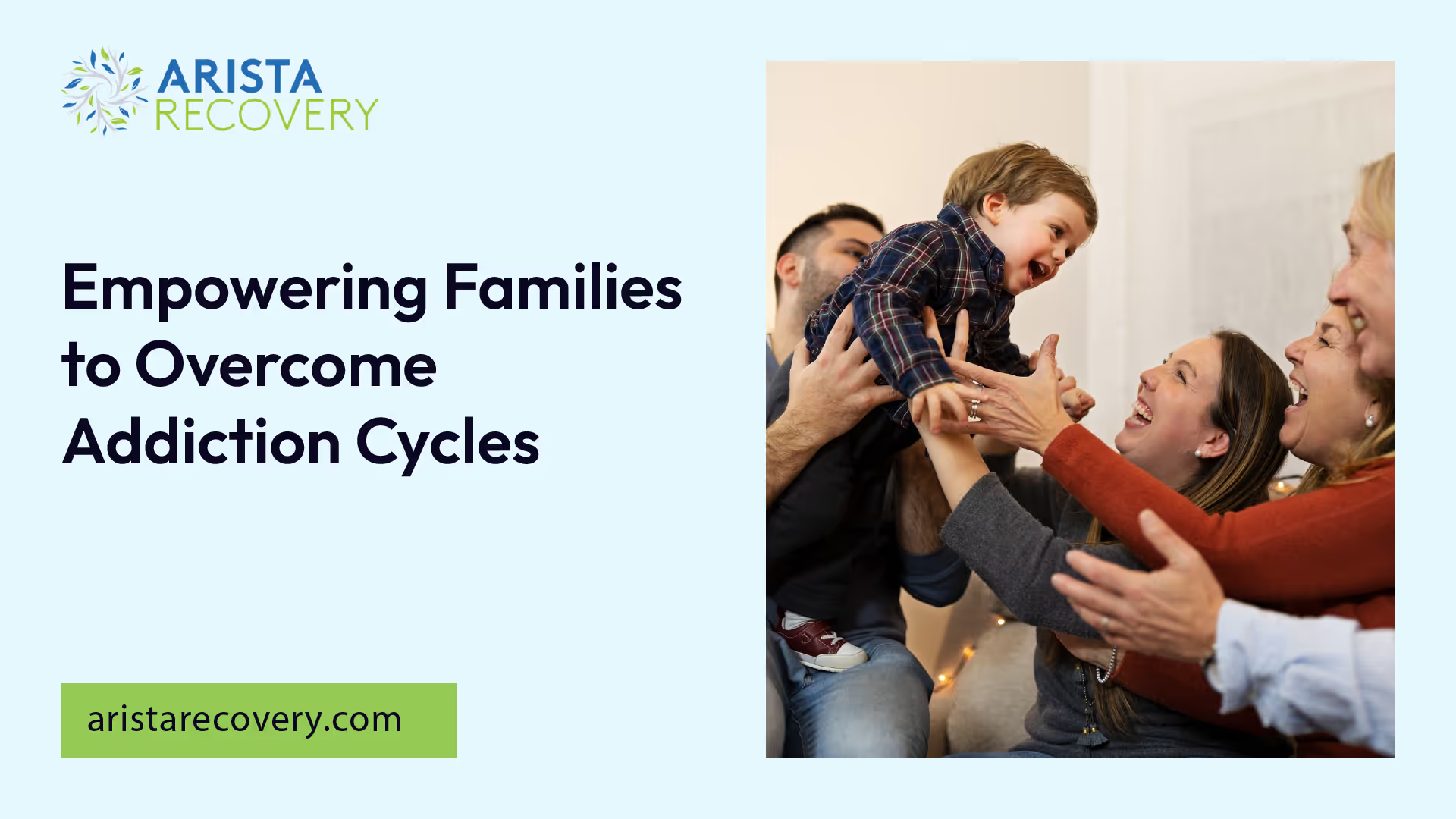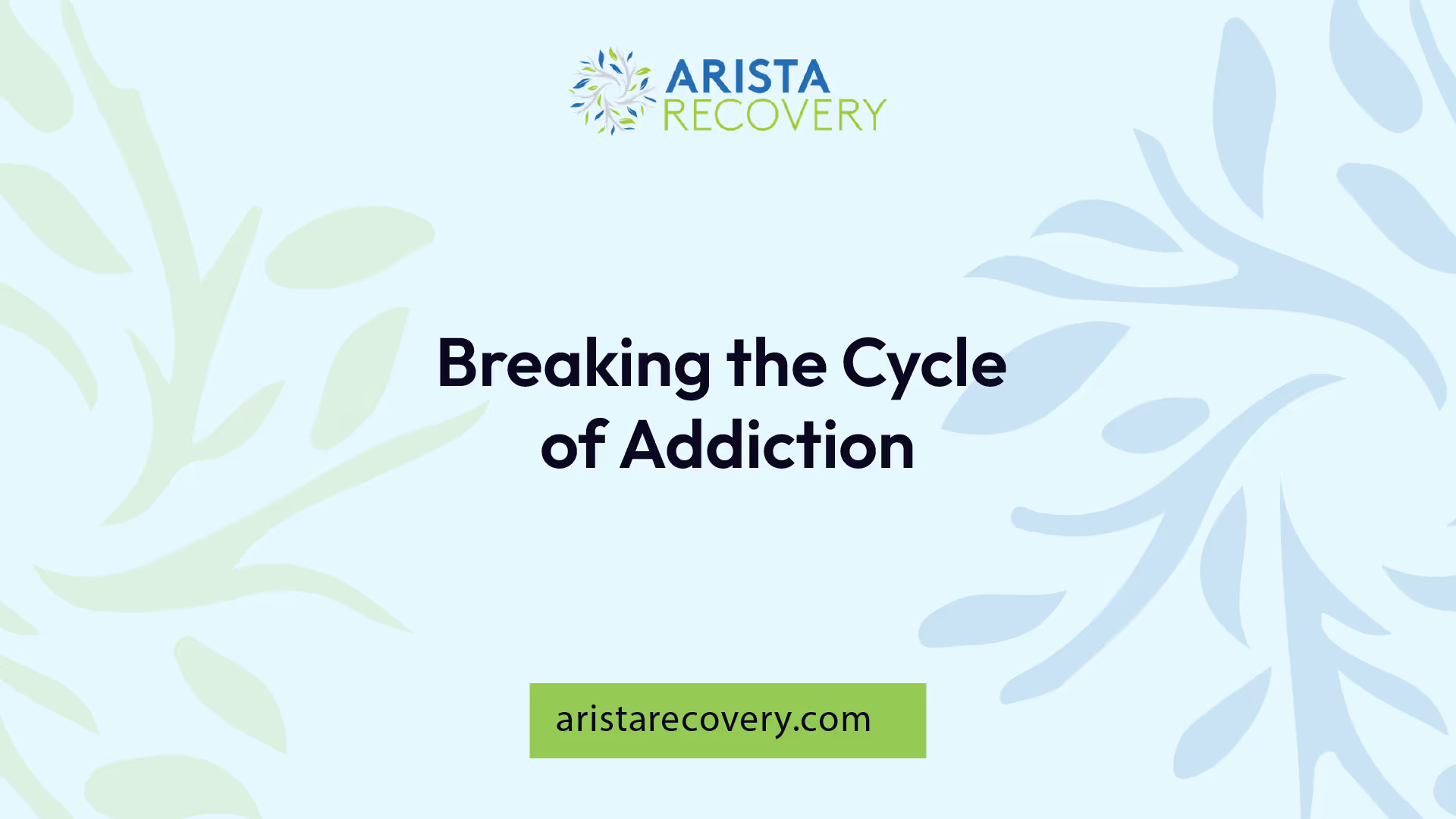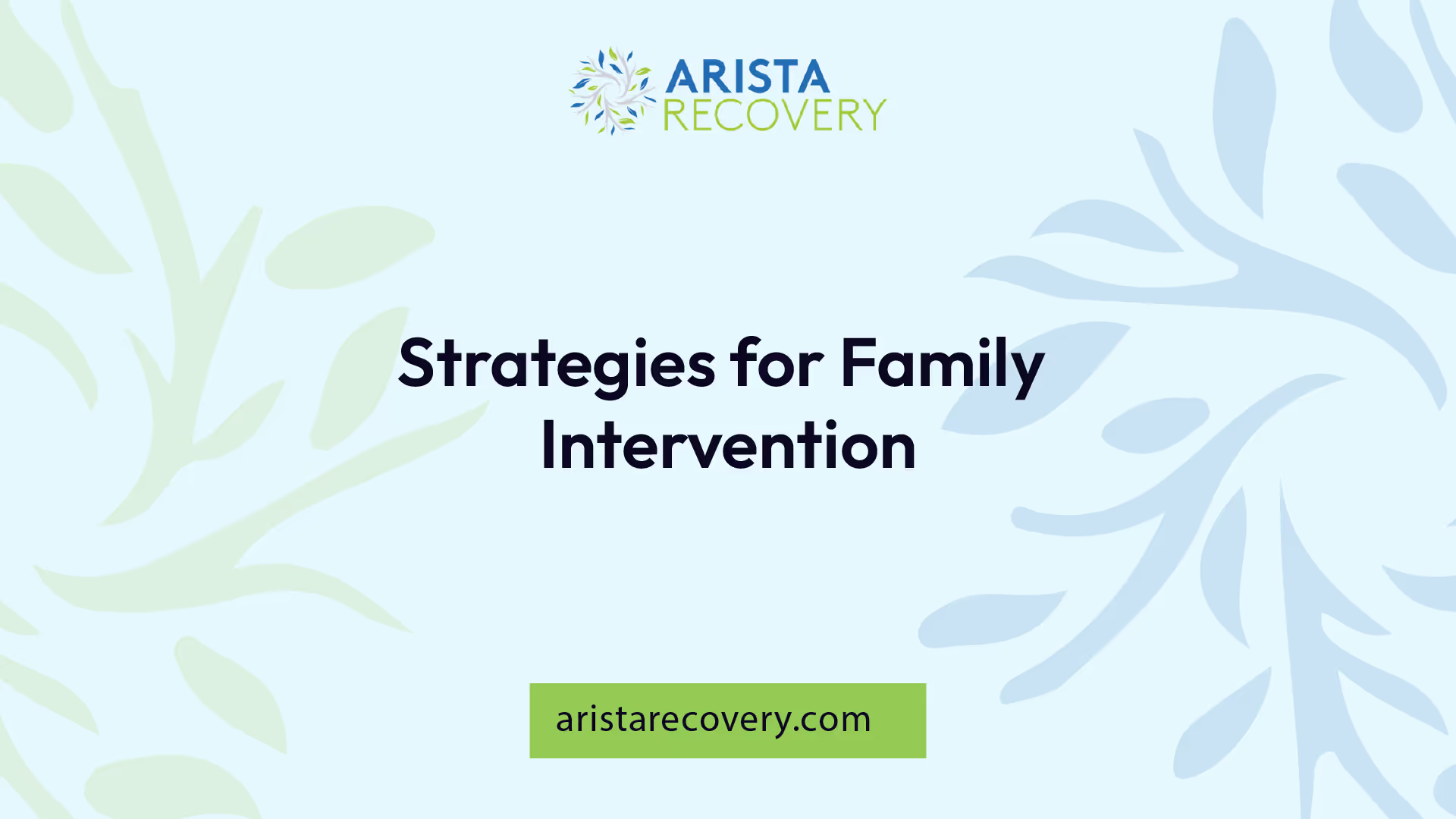Empowering Families to Overcome Addiction Cycles

Understanding Addiction in Families
Delving into the intricate web of addiction within families, it's crucial to comprehend the profound impact of substance misuse and the underlying risk factors that contribute to addictive behaviors.

Impact of Substance Misuse in Families
Parental substance misuse poses a significant threat to the well-being of both young and adult children. According to NCBI Bookshelf, parental substance misuse increases the risk of children developing Substance Use Disorders (SUDs) and mental health disorders. The detrimental effects extend beyond the immediate family, affecting generations to come. Children growing up in such environments often face challenges that may lead to adverse outcomes later in life.
Risk Factors for Substance Abuse in Families
Genetic predisposition plays a pivotal role in the development of Substance Use Disorders. Research cited by NCBI Bookshelf indicates a direct link between a family history of substance misuse and a higher likelihood of individuals developing SUDs themselves. Various genes have been associated with different substance use disorders such as alcohol, nicotine, cannabis, cocaine, and opioids. These genetic influences, coupled with environmental factors, elevate the risk of individuals from families with SUDs succumbing to addictive behaviors.
Moreover, individuals raised in families grappling with substance abuse are significantly more prone to falling into the same destructive cycle. As highlighted by PubMed Central, growing up in an environment plagued by substance abuse heightens the risk of developing SUDs due to the interplay of genetic vulnerabilities and exposure to substance-related behaviors.
The consequences of familial substance misuse extend beyond the individual struggling with addiction to impact the wider family dynamic. Parents with SUDs are reportedly three times more likely to engage in harmful behaviors towards their own children, leading to a cascade of adverse outcomes, as indicated by PubMed Central. Children raised in such households are at an increased risk of legal issues, engaging in violent behavior, and developing internalizing or externalizing disorders.
Understanding the intricate relationship between genetic predisposition and environmental influences is key to breaking the cycle of addiction within families. By recognizing the potential genetic vulnerabilities and environmental triggers, individuals can proactively make informed choices to steer clear of substance abuse. Encouraging a healthy lifestyle, seeking professional support, and distancing oneself from substance-using environments are vital steps in disrupting the cycle of addiction and fostering a path towards recovery and well-being.

Breaking the Cycle of Addiction
When it comes to breaking the cycle of addiction in families, two significant factors play a vital role: the importance of family support and the role of genetic predisposition.
Importance of Family Support
Family support is crucial in the journey of overcoming addiction. According to research by Nora Volkow, MD, at least 50% of an individual's susceptibility to addiction is linked to genetics, with some substances exhibiting even higher percentages, reaching 60-80% for substances like cocaine or nicotine. This emphasizes that family history is the single most reliable indicator for the risk of future substance abuse [1].
Children who witness drug or alcohol abuse and perceive it as normal behavior are more likely to engage in substance abuse in the future. Growing up in environments characterized by conflict, aggression, neglect, or parental psychological issues can significantly escalate the likelihood of future substance abuse among children. Through positive family support, individuals can break free from these destructive cycles and work towards a healthier and addiction-free lifestyle.
Role of Genetic Predisposition
Understanding the role of genetic predisposition in addiction is crucial for developing effective prevention and intervention strategies. Genetics play a substantial role in addiction risk, with genetic factors influencing addiction to substances like alcohol, cocaine, and heroin. Scientists may utilize genetic markers such as the dopamine receptor D2 to predict an individual's susceptibility to addiction based on their genetic makeup [1].
Moreover, children who grow up in environments where drug or alcohol abuse is prevalent are more likely to mirror these behaviors in the future. By being aware of potential genetic predispositions and the influence of family patterns of addiction, individuals can make informed choices to steer clear of substance abuse issues. Empowering individuals with knowledge about their genetic risks and family history can be instrumental in breaking the cycle of addiction and fostering a supportive environment that promotes healthy choices and positive outcomes.

Strategies for Family Intervention
When addressing the breaking the cycle of addiction in families, utilizing effective strategies for family intervention is essential in fostering recovery and healing. Two key approaches that have shown significant success in supporting families dealing with addiction are trauma-informed approaches and the utilization of family therapy and support groups.
Trauma-Informed Approaches
SUD treatment providers are encouraged to approach families with empathy and understanding, focusing on trauma-informed care rather than judgment and blame [2]. Providing trauma-informed care involves recognizing the impact of past traumatic experiences on individuals and families affected by addiction. By addressing trauma and its effects on substance use, families can work towards healing in a supportive environment.
Using attachment-informed and systems-based approaches in individual and family therapy, social workers play a critical role in supporting individuals affected by parental substance abuse [3]. These approaches delve into multigenerational trauma, substance abuse issues, and the influence of family dynamics on children's emotional and social well-being. By incorporating trauma-informed practices, families can explore underlying issues and develop healthier coping mechanisms.
Family Therapy and Support Groups
Self-help groups such as Al-Anon, Families Anonymous, and Adult Children of Alcoholics offer valuable support for family members impacted by addiction. These groups provide a safe space for sharing experiences, learning coping strategies, and expressing emotions, which can significantly enhance the chances of recovery for both the individual struggling with substance use and their family members [4]. Through shared experiences and mutual support, families can navigate the challenges of addiction together and work towards collective healing.
Involving the family in the treatment process is crucial for addressing the complex dynamics of substance use disorders (SUDs) within the family structure [3]. Evidence suggests that family-based interventions are more effective than individual or group-based treatments, emphasizing the importance of family involvement in the recovery journey. By recognizing the family as a potential source of support and implementing evidence-based family approaches, families can enhance the effectiveness of treatment and promote sustainable recovery outcomes.
In-person family recovery programs such as The Bridge to Recovery offer families a comprehensive approach to addressing addiction-related family dynamics, guilt, shame, and underlying family issues. These programs provide valuable support in understanding addiction, assisting loved ones in recovery, and fostering healthier relationships within the family unit [4]. By participating in family therapy and support groups, families can strengthen their bonds, heal from the effects of addiction, and embark on a path towards holistic recovery.
Improving Family Communication
Effective communication is essential in breaking the cycle of addiction in families and fostering healthier relationships. Recognizing communication challenges and building healthy communication patterns are key components of this journey.
Recognizing Communication Challenges
Communication issues within families can often be traced back to various factors such as individuals' upbringing, cultural backgrounds, parenting styles, and past experiences that shape their communication habits. These challenges can manifest as misunderstandings, conflicts, or a lack of effective interaction within the family unit. Acknowledging these barriers is the initial step towards addressing and overcoming them.
One common challenge is the breakdown of trust within the family due to past conflicts or unresolved issues. This lack of trust can hinder open and honest communication, leading to further distance between family members. Additionally, differences in communication styles and preferences can create misunderstandings and barriers to effective dialogue.
Building Healthy Communication Patterns
To cultivate healthy communication patterns within the family, it is crucial to establish a supportive and nurturing environment where all members feel comfortable expressing their thoughts and emotions. Open communication channels create space for honest conversations and help in resolving conflicts constructively.
Setting up regular family gatherings, whether in person or virtually, can provide a consistent platform for family members to connect [5]. These gatherings offer a safe space for individuals to share their experiences, listen to one another, and strengthen their bond over time. Consistency in these interactions can gradually lead to improved communication and deeper connections.
Making small and incremental changes in communication efforts can have a significant impact on family dynamics [5]. Simple gestures like showing empathy, actively listening, or offering support contribute to building trust and fostering a more open dialogue. By modeling positive communication behavior and practicing self-awareness, family members can create a culture of understanding and empathy within the family.
Improving family communication requires patience, effort, and a willingness to engage in honest and authentic conversations. By addressing communication challenges directly and consistently working towards building healthier communication patterns, families can strengthen their relationships and navigate the complexities of addiction recovery together.
Family Dynamics and Substance Abuse
Within the realm of addiction, exploring the dynamics of families and their interactions with substance abuse is crucial in understanding and addressing the cycle of addiction. Two significant aspects within this context are Family Systems Theory and Enabling Behaviors and Consequences.
Family Systems Theory
Family Systems Theory provides a framework for comprehending how substance misuse impacts families. According to Conifer Park, families facing addiction often encounter a cascade of consequences, including unmet developmental needs, impaired attachment, economic hardship, legal issues, emotional distress, and even violence, which permeates various aspects of family life. This theory underscores the interconnectedness within families and how the behavior of one member can influence the entire family system.
Understanding Family Systems Theory can shed light on the complexities of addiction within a familial context, highlighting the importance of addressing not just the individual struggling with substance abuse but also the family unit as a whole. By recognizing the interactions and dynamics at play, interventions and support strategies can be tailored to promote healing and recovery for the entire family.
Enabling Behaviors and Consequences
Enabling behaviors by family members, as described by PubMed Central, can inadvertently perpetuate substance use by shielding the individual with a Substance Use Disorder (SUD) from the consequences of their actions. Examples of enabling behaviors include bailing out the individual from difficult situations caused by substance misuse or providing financial support without addressing the underlying issue.
It is essential for families to recognize these enabling behaviors and understand how they contribute to the cycle of addiction. Programs like Al-Anon and Nar-Anon offer support to family members, helping them disengage with love, cease enabling behaviors, and focus on their self-care. By breaking the cycle of enabling behaviors and emphasizing accountability, families can create an environment that promotes recovery and healthy boundaries for all members involved.
By delving into Family Systems Theory and examining enabling behaviors and consequences, families can gain valuable insights into the complexities of addiction dynamics and work towards breaking the cycle of addiction through informed interventions and support systems. Utilizing these frameworks can empower families to navigate the challenges of substance abuse and foster positive change within their familial relationships.
Seeking Help and Treatment
When it comes to breaking the cycle of addiction in families, seeking help and treatment is a critical step towards recovery. Involving the family in the treatment process and accessing support resources are essential components of overcoming addiction as a unit.
Involving the Family in Treatment
Family involvement in the treatment of addiction can significantly impact the success of the recovery journey. As highlighted by SAMHSA, family members are often the first to notice changes in mood or behavior in their loved ones, making them vital in providing support and connecting individuals in need with appropriate treatment, resources, and services.
By actively engaging family members in the treatment process, individuals battling addiction can receive the necessary emotional, psychological, and practical support to navigate the challenges of recovery. Family therapy sessions, educational programs, and communication exercises can help address underlying issues, improve relationships, and establish a strong support network for long-term recovery.
Support Resources for Families
Support resources play a crucial role in empowering families to navigate the complexities of addiction and recovery successfully. Organizations like Al-Anon and Nar-Anon offer programs specifically designed to assist family members dealing with a loved one's substance use disorder. These programs aim to help family members disengage from enabling behaviors and focus on self-care.
Accessing community-based support groups, online forums, and educational workshops can provide families with a safe space to share experiences, gain insights, and learn effective coping strategies. Additionally, resources like videos and informational materials, as recommended by SAMHSA, can facilitate open conversations within families about substance use and mental health issues, fostering understanding and promoting a supportive environment for recovery.
By leveraging these support resources, families can strengthen their resilience, enhance communication, and foster a sense of unity in overcoming addiction challenges. Encouraging open dialogue, active participation in treatment, and access to relevant support services can create a nurturing environment that empowers families to break free from the cycle of addiction and embark on a journey towards healing and recovery.
References
[1]: https://theshoresrecovery.com/spot-family-patterns-addiction/
[2]: https://www.ncbi.nlm.nih.gov/books/NBK571087/
[3]: https://www.ncbi.nlm.nih.gov/pmc/articles/PMC3725219/
[5]: https://buckeyerecoverynetwork.com/8-steps-to-improve-family-communication-during-recovery/
You’re not alone in this.
When mental health challenges and addiction intersect, it can feel isolating. At Arista, we offer compassionate, evidence-based, and trauma-informed care to help you heal, grow, and move forward.
You’re not alone in this.
When mental health challenges and addiction intersect, it can feel isolating. At Arista, we offer compassionate, evidence-based, and trauma-informed care to help you heal, grow, and move forward.
Support that moves with you.
You’ve taken a brave first step. At Arista Recovery, we’re here to help you continue with best-in-class care designed for long-term healing and support.
.webp)






